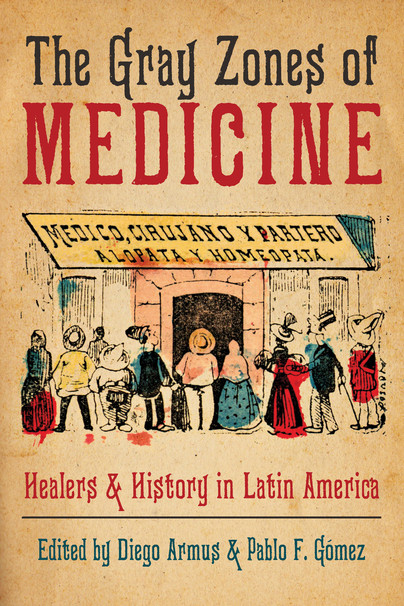
Format: Hardback
Pages: 296
ISBN: 9780822946854
Pub Date: 28 Dec 2021
Description:
Health practitioners working in gray zones, or between official and unofficial medicines, played a fundamental role in the shaping of Latin America from the colonial period onward. The Gray Zones of Medicine offers a human, relatable, complex examination of the history of health and healing in Latin America across five centuries. Contributors uncover how biographical narratives of individual actors—outside those of hegemonic biomedical knowledge, careers of successful doctors, public health initiatives, and research and medical institutions—can provide a unique window into larger social, cultural, political, and economic historical changes and continuities in the region.
They reveal the power of such stories to illuminate intricacies and resilient features of the history of health and disease, and they demonstrate the importance of escaping analytical constraints posed by binary frameworks of legality/illegality, learned/popular, and orthodoxy/heterodoxy when writing about the past. Through an accessible and story-like format, this book unlocks the potential of historical narratives of healings to understand and give nuance to processes too frequently articulated through intellectual medical histories or the lenses of empires, nation-states, and their institutions.
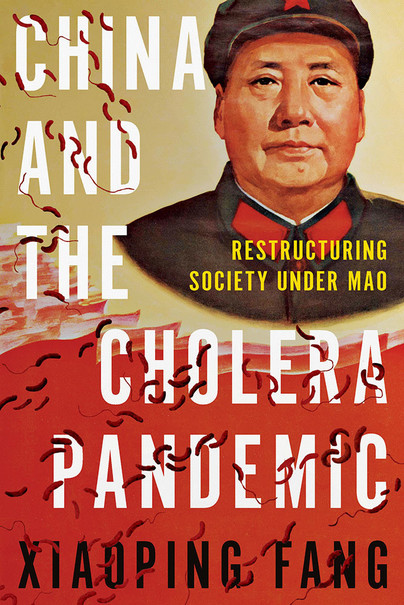
Format: Paperback
Pages: 312
ISBN: 9780822966838
Pub Date: 28 Sep 2021
Description:
Mao Zedong's Great Leap Forward campaign organized millions of Chinese peasants into communes in a misguided attempt to rapidly collectivize agriculture with disastrous effects. Catastrophic famine lingered as the global cholera pandemic of the early 1960s spread rampantly through the infected waters of southeastern coastal China. Confronted with a political crisis and the seventh global cholera pandemic in recorded history, the communist government committed to social restructuring in order to affirm its legitimacy and prevent transmission of the disease.
Focusing on the Wenzhou Prefecture in Zhejiang Province, the area most seriously stricken by cholera at the time, Xiaoping Fang demonstrates how China's pandemic was far more than a health incident; it became a significant social and political influence during a dramatic transition for the People's Republic. China and the Cholera Pandemic reveals how disease control and prevention, executed through the government's large-scale, clandestine anticholera campaign, were integral components of its restructuring initiatives, aimed at restoring social order. The subsequent rise of an emergency disciplinary health state furthered these aims through quarantine and isolation, which profoundly impacted the social epidemiology of the region, dividing Chinese society and reinforcing hierarchies according to place, gender, and socioeconomic status.

Format: Hardback
Pages: 448
ISBN: 9780822945772
Pub Date: 05 Jun 2021
Series: The Correspondence of John Tyndall
Description:
The 318 letters in this volume reveal a great deal about Tyndall’s personality, the development of his career, and his role in attempting to better establish science as a respectable and professional enterprise. However, Tyndall was not above controversy, and on more than one occasion he entered public disputes either in defense of his own or a colleagues’ priority claims over scientific discoveries. Perhaps the most dramatic letters - if not those detailing the accounts of his cousin Hector Tyndale’s courageous exploits in the American Civil War - are those relating to Tyndall’s mountaineering adventures.
He climbed in pursuit of science, and often with only a guide, making an attempt on the Matterhorn just days after Edward Whymper had failed in the effort. Toward the end of this volume, Tyndall, Thomas Henry Huxley, and others acquired the Reader. Although short-lived, the journal intended to promote and publish the works, society meetings, and correspondence of scientific men, and demonstrates Tyndall’s commitment to the popularization of science and to facilitating communication within the international scientific community.
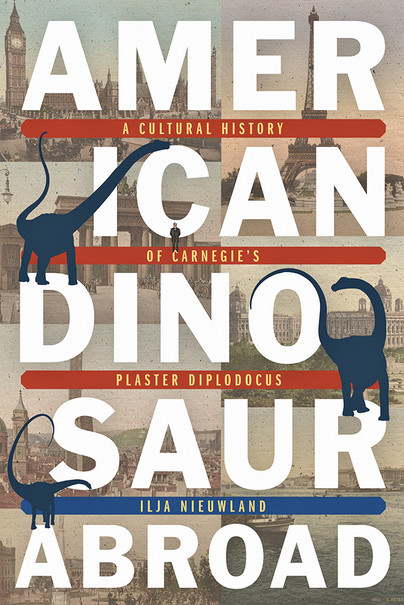
Format: Paperback
Pages: 336
ISBN: 9780822966524
Pub Date: 28 Mar 2021
Illustrations: 56 b&w
Description:
In early July 1899, an excavation team of paleontologists sponsored by Andrew Carnegie discovered the fossil remains in Wyoming of what was then the longest and largest dinosaur on record. Named after its benefactor, the Diplodocus carnegii—or Dippy, as it’s known today—was shipped to Pittsburgh and later mounted and unveiled at the Carnegie Museum of Natural History in 1907. Carnegie’s pursuit of dinosaurs in the American West and the ensuing dinomania of the late nineteenth century coincided with his broader political ambitions to establish a lasting world peace and avoid further international conflict.
An ardent philanthropist and patriot, Carnegie gifted his first plaster cast of Dippy to the British Museum at the behest of King Edward VII in 1902, an impulsive diplomatic gesture that would result in the donation of at least seven reproductions to museums across Europe and Latin America over the next decade, in England, Germany, France, Austria, Italy, Russia, Argentina, and Spain. In this largely untold history, Ilja Nieuwland explores the influence of Andrew Carnegie’s prized skeleton on European culture through the dissemination, reception, and agency of his plaster casts, revealing much about the social, political, cultural, and scientific context of the early twentieth century.
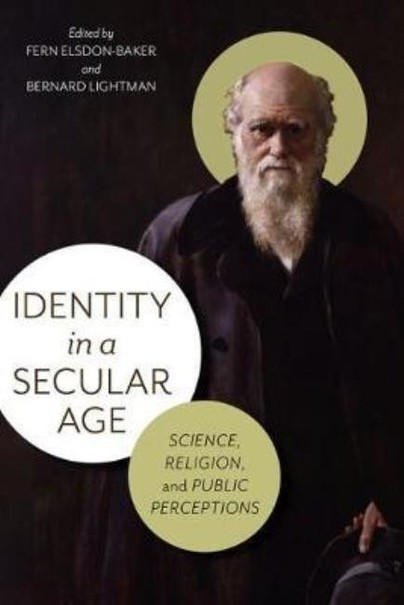
Format: Hardback
Pages: 312
ISBN: 9780822946281
Pub Date: 28 Mar 2021
Series: Science, Values, and the Public
Illustrations: 21 b&w
Description:
Although historians have suggested for some time that we move away from the assumption of a necessary clash between science and religion, the conflict narrative persists in contemporary discourse. But why? And how do we really know what people actually think about evolutionary science, let alone the many and varied ways in which it might relate to individual belief?
In this multidisciplinary volume, experts in history and philosophy of science, oral history, sociology of religion, social psychology, and science communication and public engagement look beyond two warring systems of thought. They consider a far more complex, multifaceted, and distinctly more interesting picture of how differing groups along a spectrum of worldviews - including atheistic, agnostic, and faith groups - relate to and form the ongoing narrative of a necessary clash between evolution and faith. By ascribing agency to the public, from the nineteenth century to the present and across Canada and the United Kingdom, this volume offers a much more nuanced analysis of people’s perceptions about the relationship between evolutionary science, religion, and personal belief, one that better elucidates the complexities not only of that relationship but of actual lived experience.

Format: Hardback
Pages: 244
ISBN: 9781949669305
Pub Date: 23 Feb 2021
Description:
During the early 1990s, the diet drugs fen-phen and Redux achieved tremendous popularity. The chemical combination was discovered by chance, marketed with hyperbole, and prescribed to millions. But as the drugs' developer, pharmaceutical giant American Home Products, cashed in on the miracle weight-loss pills, medical researchers revealed that the drugs caused heart valve disease.
This scandal was, incredibly, only the beginning of an unbelievable saga of greed and graft. In Fat Chance, Rick Christman recounts a story that a judicial tribunal member later described as "a tale worthy of the pen of Charles Dickens." As class action lawsuits against American Home Products began to be filed, four avaricious attorneys saw an irresistible opportunity. Bill Gallion, Shirley Cunningham, Melbourne Mills, and Stan Chesley contrived to a bring a class action suit to trial in Covington, Kentucky, where their hired trial consultant, Mark Modlin, had a manipulative relationship with the presiding judge, Jay Bamberger. Their efforts were rewarded with a $200 million settlement - a sum that the four lawyers immediately set out to plunder and misappropriate. Ultimately, two of the attorneys received long prison sentences, another was acquitted after claiming to be unaware of the grift due to his alcoholism, and one managed to escape criminal charges; all four were disbarred, and Bamberger was disbarred and disrobed. Recounting a dramatic affair that bears conspicuous similarities to opioid-related class action litigation against the pharmaceutical industry, Christman offers an engaging if occasionally horrifying account of one of America's most prominent product liability cases and the settlement's aftermath.
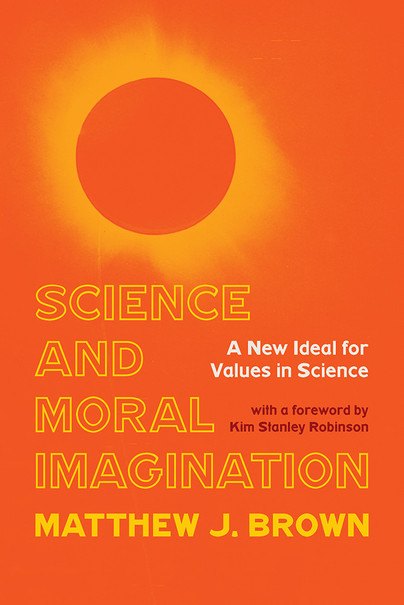
Format: Hardback
Pages: 288
ISBN: 9780822946267
Pub Date: 05 Jan 2021
Series: Science, Values, and the Public
Illustrations: 6 b&w
Description:
The idea that science is or should be value-free, and that values are or should be formed independently of science, has been under fire by philosophers of science for decades. Science and Moral Imagination directly challenges the idea that science and values cannot and should not influence each other. Matthew J.
Brown argues that science and values mutually influence and implicate one another, that the influence of values on science is pervasive and must be responsibly managed, and that science can and should have an influence on our values. This interplay, he explains, must be guided by accounts of scientific inquiry and value judgment that are sensitive to the complexities of their interactions. Brown presents scientific inquiry and value judgment as types of problem-solving practices and provides a new framework for thinking about how we might ethically evaluate episodes and decisions in science, while offering guidance for scientific practitioners and institutions about how they can incorporate value judgments into their work. His framework, dubbed “the ideal of moral imagination,” emphasizes the role of imagination in value judgment and the positive role that value judgment plays in science.
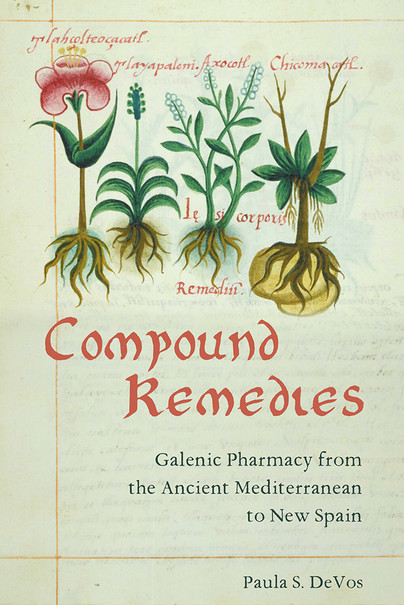
Format: Hardback
Pages: 404
ISBN: 9780822946496
Pub Date: 22 Dec 2020
Illustrations: 40 b&w
Description:
Compound Remedies examines the equipment, books, and remedies of colonial Mexico City’s Herrera pharmacy - natural substances with known healing powers that formed the basis for modern-day healing traditions and home remedies in Mexico. Paula De Vos traces the evolution of the Galenic pharmaceutical tradition from its foundations in Ancient Greece to the physician-philosophers of the Islamic empires in the medieval Latin West and eventually through the Spanish Empire to Mexico, offering a global history of the transmission of these materials, knowledges, and techniques. Her detailed inventory of the Herrera pharmacy reveals the many layers of this tradition and how it developed over centuries, providing new perspectives and insight into the development of Western science and medicine: its varied origins, its engagement with and inclusion of multiple knowledge traditions, the ways in which these traditions moved and circulated in relation to imperialism, and its long-term continuities and dramatic transformations.
De Vos ultimately reveals the great significance of pharmacy, and of artisanal pursuits more generally, as a cornerstone of ancient, medieval, and early modern epistemologies and philosophies of nature.
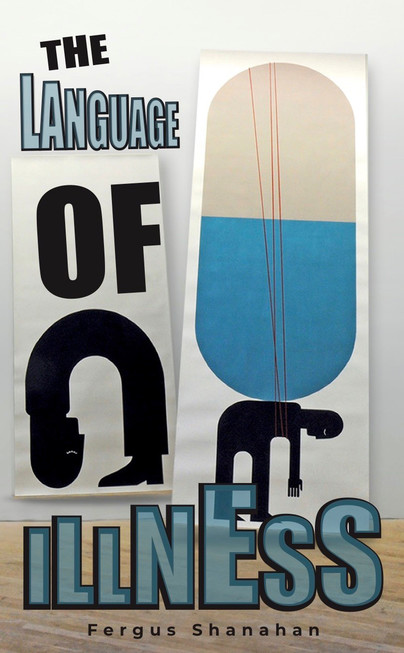
Format: Hardback
Pages: 224
ISBN: 9781912589159
Pub Date: 14 Oct 2020
Description:
The practice of medicine has advanced dramatically in recent years, but the language used to discuss illness - by medical practitioners, patients and caregivers - has not kept pace. As a result, clinicians and, just as importantly, patients and their relatives and caregivers, are not able to communicate clearly in relation to illness. The upshot is misunderstanding and confusion on all sides.
In this groundbreaking book, Dr. Fergus Shanahan, an eminent gastroenterologist who has practiced in Ireland, the United States and Canada, and published widely around the world, looks at memoirs of illness, and outlines the lessons we can learn from a better understanding of the words we use to describe illness. He looks at the ways in which language can act as a barrier with regard to illness, and proposes practical ways in which we can dismantle these barriers. The book is written for the general reader: as Dr. Shanahan puts it himself, he is “enough of an expert to be wary of experts." The Language of Illness, part manifesto, part memoir, and part instruction manual, is an appeal for the use of clearer, more holistic language, by all those involved with, and affected by, illness. Like the great American poet-doctor William Carlos Williams, he aims to help us develop a new language by means of which we can develop a new way of living with illness - which is an integral part of the human condition. Put simply, it is a book for all those who care about caring.
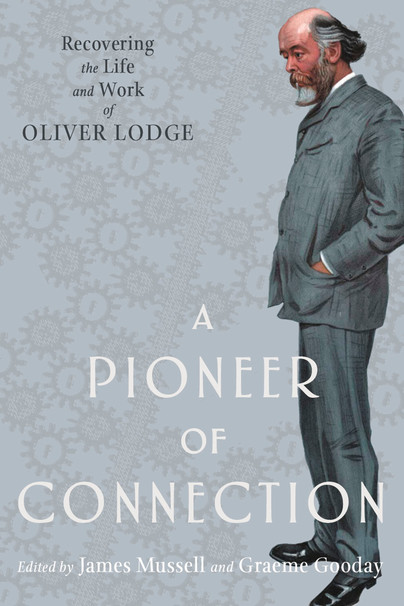
Format: Hardback
Pages: 336
ISBN: 9780822945956
Pub Date: 30 Sep 2020
Illustrations: 9 b&w
Description:
Sir Oliver Lodge was a polymathic scientific figure who linked the Victorian Age with the Second World War, a reassuring figure of continuity across his long life and career. A physicist and spiritualist, inventor and educator, author and authority, he was one of the most famous public figures of British science in the late nineteenth and early twentieth centuries. A pioneer in the invention of wireless communication and later of radio broadcasting, he was foundational for twentieth-century media technology and a tireless communicator who wrote upon and debated many of the pressing interests of the day in the sciences and far beyond.
Yet since his death, Lodge has been marginalized. By uncovering the many aspects of his life and career, and the changing dynamics of scientific authority in an era of specialization, contributors to this volume reveal how figures like Lodge fell out of view as technical experts came to dominate the public understanding of science in the second half of the twentieth century. They account for why he was so greatly cherished by many of his contemporaries, examine the reasons for his eclipse, and consider what Lodge, a century on, might teach us about taking a more integrated approach to key scientific controversies of the day.
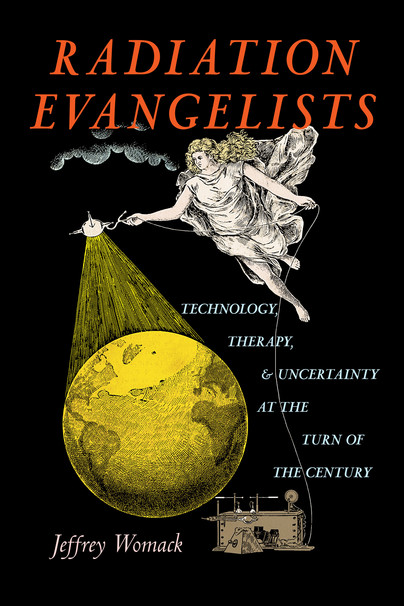
Format: Hardback
Pages: 228
ISBN: 9780822946090
Pub Date: 30 Sep 2020
Illustrations: 43 b&w
Description:
Radiation Evangelists explores x-ray and radium therapy in the United States and Great Britain during a crucial period of its development, from 1896 to 1925. It focuses on the pioneering work of early advocates in the field, the “radiation evangelists” who, motivated by their faith in a new technology, trust in new energy sources, and hope for future breakthroughs, turned a blind eye to the dangers of radiation exposure. Although ionizing radiation effectively treated diseases like skin infections and cancers, radiation therapists - who did not need a medical education to develop or administer procedures or sell tonics containing radium - operated in a space of uncertainty about exactly how radiation worked or would affect human bodies.
And yet radium, once a specialized medical treatment, would eventually become a consumer health product associated with the antibacterial properties of sunlight.
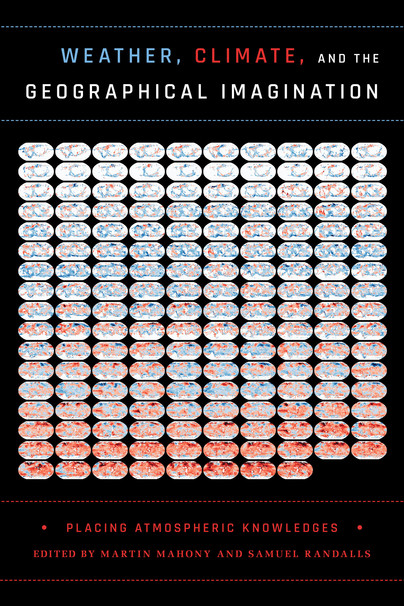
Format: Hardback
Pages: 360
ISBN: 9780822946168
Pub Date: 30 Sep 2020
Illustrations: 22 b&w
Description:
As global temperatures rise under the forcing hand of humanity’s greenhouse gas emissions, new questions are being asked of how societies make sense of their weather, of the cultural values, which are afforded to climate, and of how environmental futures are imagined, feared, predicted, and remade. Weather, Climate, and Geographical Imagination contributes to this conversation by bringing together a range of voices from history of science, historical geography, and environmental history, each speaking to a set of questions about the role of space and place in the production, circulation, reception, and application of knowledges about weather and climate. The volume develops the concept of “geographical imagination” to address the intersecting forces of scientific knowledge, cultural politics, bodily experience, and spatial imaginaries, which shape the history of knowledges about climate.
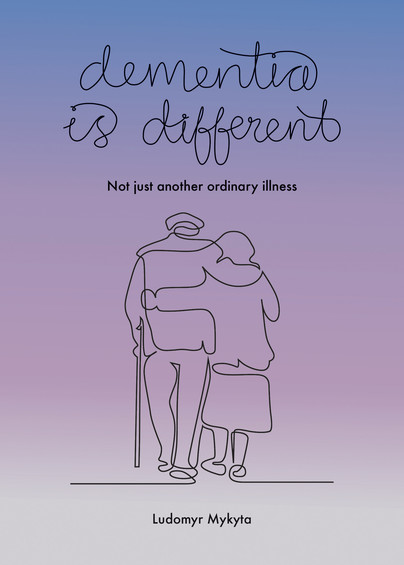
Format: Paperback
Pages: 354
ISBN: 9781925801248
Pub Date: 31 May 2020
Imprint: Australian Scholarly Publishing
Description:
People suffering from dementia need continued high-quality health care from diagnosis until the end of life. Stable relationships and wellness are the prerequisites for quality of life. In countries like Australia, this is the era of chronic illness of which dementia is the epitome.
The seeming epidemic of dementia comes with the ageing of the population, which was predictable for generations and for which successive governments failed to prepare. What now passes for aged care in Australia is a travesty where the glowing reform rhetoric obfuscates the grim reality.
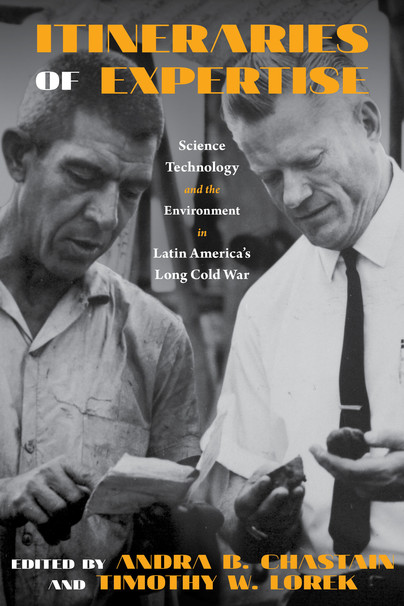
Format: Paperback
Pages: 366
ISBN: 9780822945963
Pub Date: 17 Mar 2020
Illustrations: 22 b&w
Description:
Itineraries of Expertise contends that experts and expertise played fundamental roles in the Latin American Cold War. While traditional Cold War histories of the region have examined diplomatic, intelligence, and military operations and more recent studies have probed the cultural dimensions of the conflict, the experts who constitute the focus of this volume escaped these categories. Although they often portrayed themselves as removed from politics, their work contributed to the key geopolitical agendas of the day.
The paths traveled by the experts in this volume not only traversed Latin America and connected Latin America to the Global North, they also stretch traditional chronologies of the Latin American Cold War to show how local experts in the early twentieth century laid the foundation for post–World War II development projects, and how Cold War knowledge of science, technology, and the environment continues to impact our world today. These essays unite environmental history and the history of science and technology to argue for the importance of expertise in the Latin American Cold War.
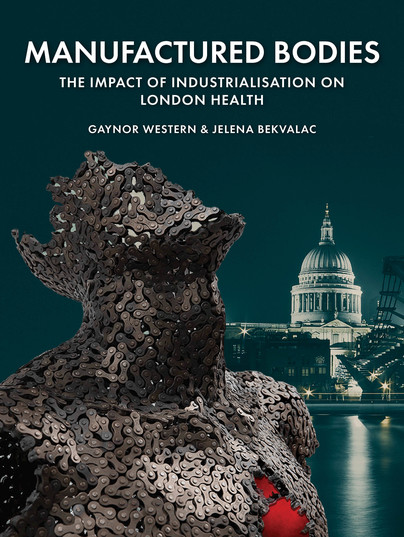
Format: Paperback
Pages: 272
ISBN: 9781789253221
Pub Date: 31 Dec 2019
Illustrations: b/w and colour
Description:
Industrialisation is a notoriously complex issue in terms of the hazards and benefits it has brought to human beings in our endeavours to improve our lives. This is never more evident than in the field of health and medicine, where there are many questions about the causes and treatments of diseases we commonly encounter today, such as cancer, diabetes and degenerative age-related conditions. Are there genetic predispositions to these conditions?
Are they a mirror of our modern lives driven by our fast-paced lifestyles or have they always existed but gone undetected? The archive of human skeletal remains at the Museum of London provides a large bank of evidence that has been explored here, along with other skeletal collections from around England, to investigate how far some of these diseases go back in time and what we can tell about the influence of living environments past and present on human health. The Industrial Period was a key period in human history where substantial change occurred to the population’s lifestyles, in terms of occupations, housing and diet as well as leisurely past-times, all of which would have impacted on their health. London had become the most densely populated metropolis in the world, the beating heart of trade and consumerism, an unambiguous example of the urban experience in the Industrial age. Using up-to-date medical imaging technologies in addition to osteoarchaeological examination of human skeletal remains, we have been able to establish the presence of modern day diseases in individuals living in the past, both before and during Industrialisation, to compare to rates in UK populations today. By re-examining the skeletal evidence, we have traced how the perils of unregulated rural and urban lives, changing food consumption, transport, technologies as well as improving medical treatment and life expectancy, have all altered health patterns over time.
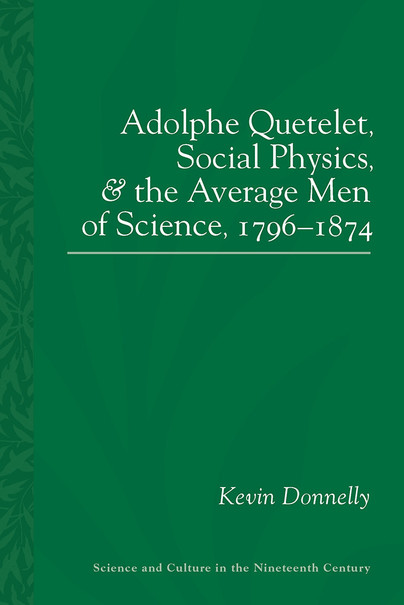
Format: Paperback
Pages: 232
ISBN: 9780822966081
Pub Date: 25 Jun 2019
Description:
Adolphe Quetelet was an influential astronomer and statistician whose controversial work inspired heated debate in European and American intellectual circles. In creating a science designed to explain the “average man,” he helped contribute to the idea of normal, most enduringly in his creation of the Quetelet Index, which came to be known as the Body Mass Index. Kevin Donnelly presents the first scholarly biography of Quetelet, exploring his contribution to quantitative reasoning, his place in nineteenth-century intellectual history, and his profound influence on the modern idea of average.

















